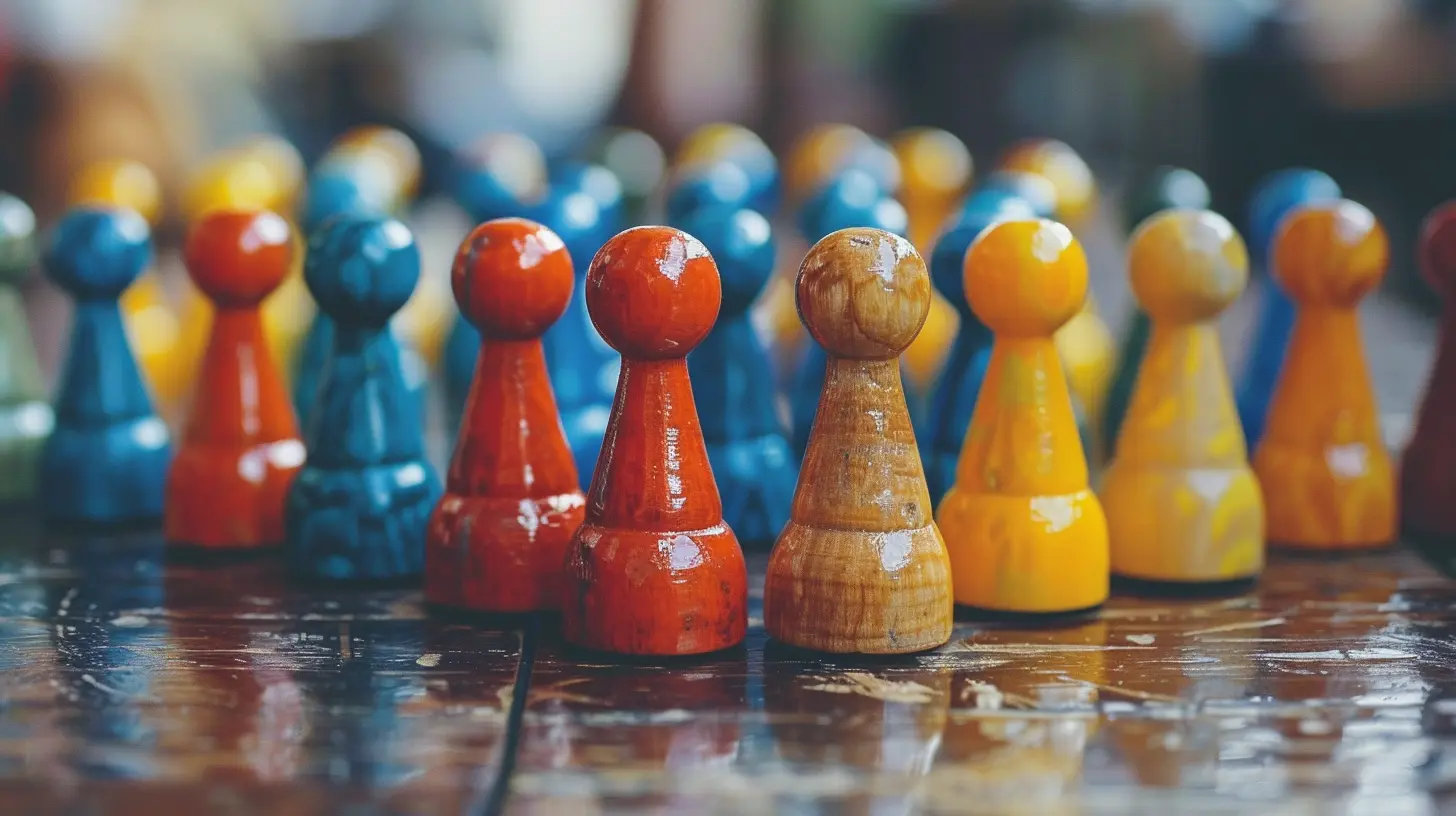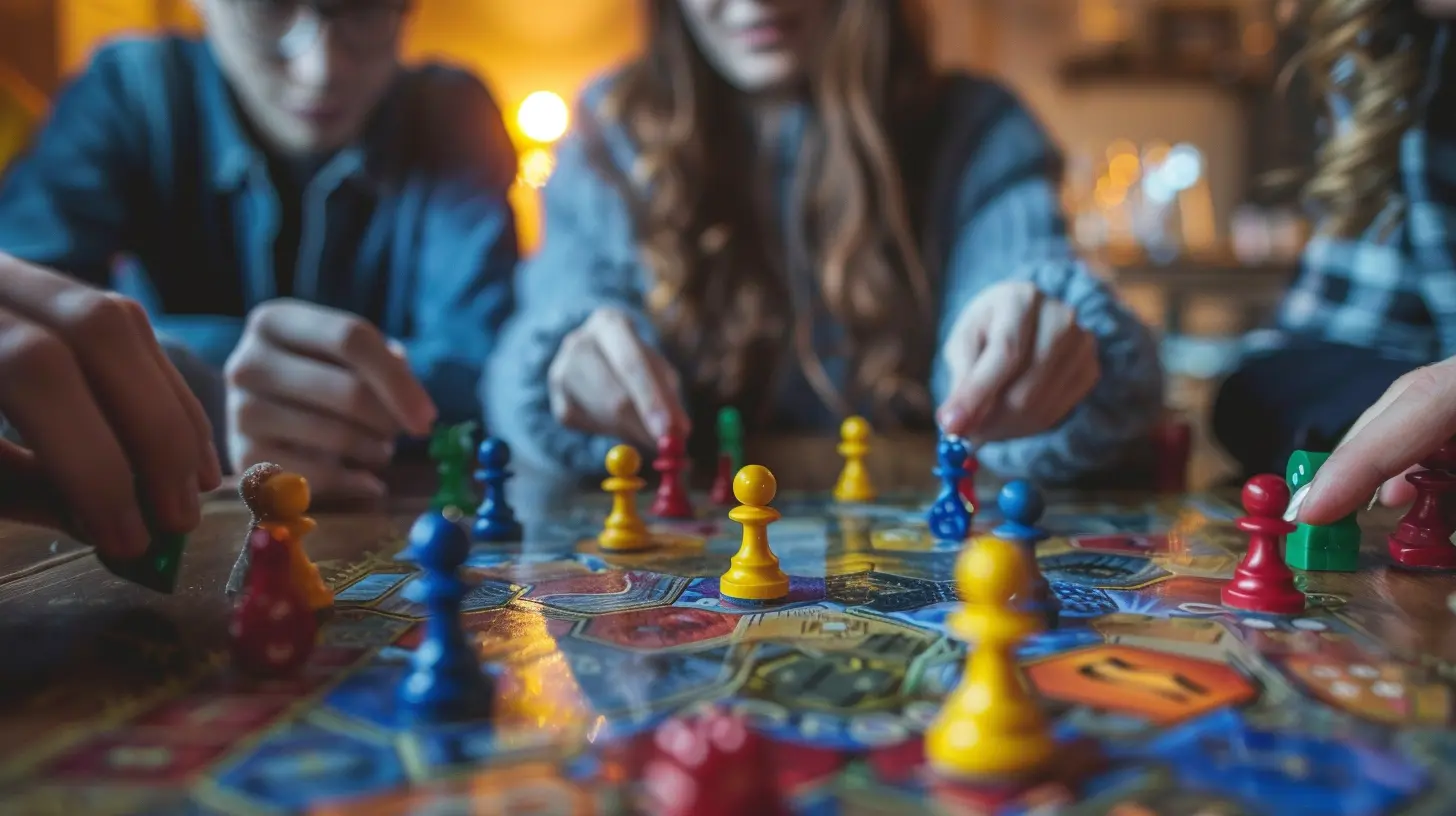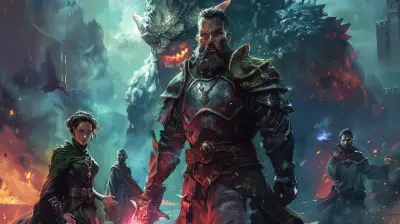Exploring the Social Dynamics in Cooperative vs. Competitive Games
19 November 2025
Gaming isn’t just about flashy visuals, jaw-dropping storylines, or who’s got the latest console. It’s about people—how we interact, compete, collaborate, or, let's be real, sometimes scream at each other in frustration. At its core, gaming is a social experience. Whether you’re joining forces to defeat a massive raid boss or battling it out to see who’s the last one standing, there’s an undeniable pull in the relationships and dynamics these games create.
So, let’s dive into the fascinating world of cooperative vs. competitive games. How do these different styles shape our interactions with others? What makes one feel like a hug fest, while the other can feel like that intense sibling rivalry over whose turn it is to take out the trash? Let’s break it down. 
What Are Cooperative and Competitive Games?
Before we dive into the nitty-gritty, let’s clarify the difference between these styles.Cooperative Games: Teamwork Makes the Dream Work
Cooperative games are all about working together toward a common goal. Here, it’s “us versus the game.” Whether you’re building a city, solving puzzles, or fending off hordes of zombies, teamwork is king. Think games like Overcooked, where you and your friends scramble to cook and serve dishes in chaotic kitchens, or Left 4 Dead, where surviving a zombie apocalypse demands tight coordination.The vibe? Everyone pulls their weight, and success is shared. When done right, these games can feel like a team-building exercise on steroids. When done wrong? Chaos, shouting, and maybe a few wounded egos. (Looking at you, Overcooked dish washers!)
Competitive Games: Winner Takes All
On the flip side, competitive games pit players against each other. It’s “me versus you,” and only one can come out on top. Whether you’re sniping opponents in Call of Duty, dominating the mid-lane in League of Legends, or trash-talking your best friend after landing a +4 card in UNO, competitive games bring out that primal need to prove who’s the best.And the vibe here? Intense. Sometimes it’s all fun and laughs, but let’s not deny the occasional salty moments. If you’ve ever yelled “lag” as an excuse after losing, you know exactly what I mean. 
The Social Dynamics of Cooperative Games
Fostering Communication and Trust
Co-op games shine when it comes to communication. Whether you’re yelling “HEAL ME!” in a frantic boss fight or coordinating positions on a map, these games thrive on teamwork. They force players to build trust and work towards a shared objective.For example, in Phasmophobia, everyone plays distinct roles—one player might be setting up video cameras, while another’s busy screaming in terror (uh, I mean, gathering evidence). Success hinges on trusting each other’s abilities.
But you know what’s funny? Co-op games also expose communication breakdowns. Ever tried giving directions to someone who can’t figure out left from right? It’s frustrating but, in a way, hilarious too. Co-op games can strengthen friendships—or at least teach you how to be patient with people.
A Safe Space for Mistakes
In cooperative games, the stakes usually feel lower because you’re in it together. Sure, someone might slip up and send your entire party spiraling into defeat (cough Leroy Jenkins cough), but there’s also forgiveness. These games often build camaraderie because you all share the blame or the glory, no matter the outcome.And let’s be real, there’s something heartwarming about reviving a fallen teammate or working together to overcome a seemingly impossible challenge. It’s like the Care Bears of gaming—team spirit all the way.
Potential Pitfalls
Of course, there are downsides. Ever had that one teammate who just doesn’t pull their weight? (Yeah, I’m talking about the guy looting treasure while everyone else fights the boss.) Co-op games can sometimes amplify frustration, especially when people aren’t on the same page.
The Social Dynamics of Competitive Games
Testing Skill and Ego
Competitive games dive straight into the deep end of human nature: the need to win. These games are a battlefield for testing personal skill, strategy, and sometimes sheer dumb luck. The social dynamics here? A mix of respect, rivalry, and, occasionally, a hint of salt.Take Rocket League, for instance. You’ve got fast cars, soccer, and chaotic gameplay. Winning feels like you’ve achieved god-tier status, while losing makes you question every life choice you ever made. The social aspect here revolves around healthy (or unhealthy) competition.
Trash Talk and Banter
Competitive games are magnets for trash talk, but let’s admit it—sometimes, it’s all part of the fun. Whether it’s friendly banter or some light-hearted jabs, competitive gaming thrives on that tension. It’s all in good spirit (most of the time).At the same time, these games often demand respect. Facing a skilled opponent can make you "level up" mentally, pushing you to think faster and act sharper. By the end of it, whether you win or lose, there’s often mutual acknowledgment of each other’s skills.
The Dark Side of Competition
But let’s not sugarcoat things. Competitive games can sometimes bring out the worst in people. Rage quitting, toxic behavior, or arguments over the tiniest details can sour the experience. If someone’s ever thrown a controller in frustration (guilty as charged), you know what I mean.
Cooperative vs. Competitive: How They Influence Friendships
Here’s where things get interesting: how these styles affect relationships.Building Bonds in Cooperative Games
Co-op games are like the pizza parties of gaming. They’re built to bring people closer together. Working toward shared goals fosters trust and camaraderie. And when you succeed as a team? It’s like catching the perfect wave—pure bliss.But it’s not just about winning. Cooperative games create moments of shared struggle. These are the kind of experiences that build stories you’ll laugh about for weeks. Remember that time your friend tripped the alarm in Payday 2? Good times.
Testing Friendships in Competitive Games
Competitive games? They’re a different beast. Sure, they can strengthen bonds (especially when you trash talk each other in good humor), but they can also test friendships. Losing to your best friend repeatedly in Smash Bros. can sting, no matter how much you love them.Yet, the thrill of competition can create a unique kind of respect. Pushing each other to do better, learning from losses, and celebrating victories together all add depth to relationships.
The Role of Personality and Preference
Why do some people gravitate toward co-op games, while others thrive on competition? It boils down to personality.- Team-focused players often prefer cooperative games because they enjoy collaboration. They’re in it for the shared victory, not individual glory.
- Competitive players, on the other hand, love the adrenaline rush of going head-to-head. They’re driven by the challenge and the sweet, sweet taste of victory.
Of course, there are people who love both. It really depends on the mood. Some days, you want to save the world with your pals. Other days, you just want to crush them mercilessly. (No judgment here.)
The Future of Gaming Dynamics
As gaming evolves, we’re seeing more hybrid experiences that blur the lines between cooperation and competition. Games like Among Us combine teamwork with backstabbing, creating a social dynamic unlike anything else. It’s part co-op, part competitive, and 100% chaos.With the rise of online multiplayer and cross-platform play, the way we interact in games is constantly shifting. Cooperative and competitive titles will always have their place, but new innovations are redefining what these experiences can be.
Final Thoughts
At the end of the day, whether you’re teaming up to slay a dragon or going head-to-head in a battle royale, gaming is all about connection. Cooperative games teach us the power of unity, while competitive games push us to be our best (and sometimes our saltiest).Both styles have their charm, and one isn’t necessarily better than the other. It all depends on what you’re in the mood for and, honestly, who you’re playing with. Because, let’s face it, games might be about pixels and mechanics, but what truly makes them memorable is the people we share them with.
all images in this post were generated using AI tools
Category:
Social GamesAuthor:

Emery Larsen
Discussion
rate this article
1 comments
Echo Clayton
Love the balance of play!
November 20, 2025 at 4:07 AM

Emery Larsen
Thank you! I'm glad you enjoyed the exploration of that balance!


